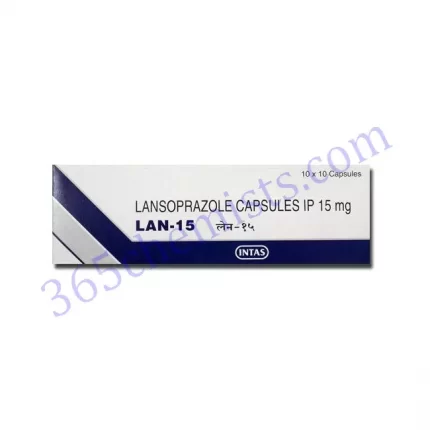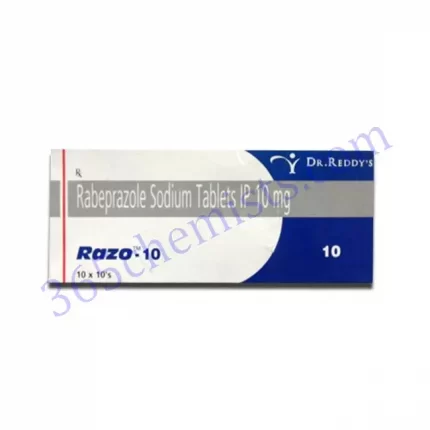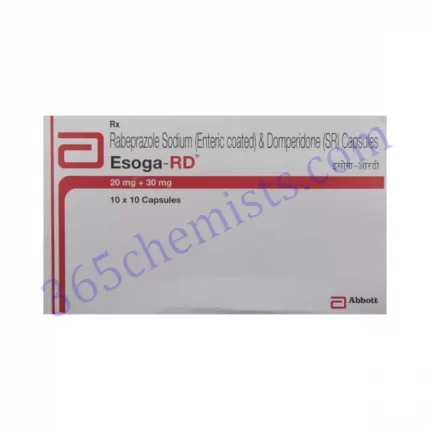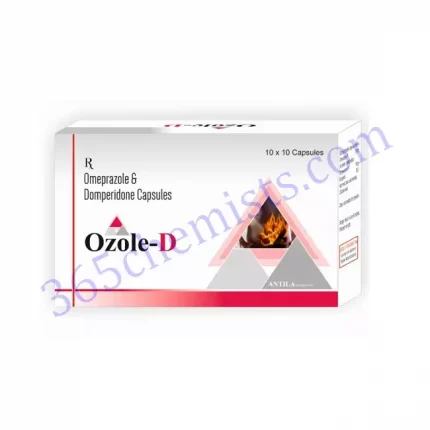INTRODUCTION
FAMOCID 40 MG contain famotidine which belongs to a group of medicine called H2-receptor antagonist. It is used to treat stomach ulcers (gastric/ duodenal ulcers), irritation and inflammation caused by stomach acid leaking up into the gullet (reflux oesophagitis), Zollinger-Ellison-Syndrome.
Zollinger-Ellison-Syndrome is a rare digestive disorder that involves recurrent ulcers and tumours in the stomach and intestines.
It is strictly not recommended for use in children. Before taking this medicine tell your doctor if you have ever had kidney disease, heart disease, liver problems. Pregnant and breastfeeding women should consult their doctor before taking this medicine. FAMOCID 40 MG works by reducing the amount of acid you produce in your stomach. This medicine must be taken before food. Try to take FAMOCID 40MG at the same time each day. It should be swallowed whole with water. Do not crush or chew the medicine. The common side effects are headache, dizziness, constipation, diarrhoea.
USES OF FAMOCID 40MG
Treat stomach ulcers (gastric/ duodenal ulcers), Irritation and inflammation caused by stomach acid leaking up into the gullet (reflux oesophagitis), Zollinger-Ellison-Syndrome
HOW FAMOCID 40MG WORKS
FAMOCID 40MG works by reducing the amount of acid you produce in your stomach.
DIRECTIONS FOR USE
Always take FAMOCID 40MG exactly as your doctor has told you. This medicine must be taken before food. Try to take FAMOCID 40 MG at the same time each day. It should be swallowed whole with water. Do not crush or chew the medicine.
Dosage
SIDE EFFECTS OF FAMOCID 40MG
SERIOUS
Allergic reaction symptoms such as swelling of the face, throat or tongue, difficulty in breathing or dizziness (anaphylaxis), difficulty in breathing or wheezing (bronchospasm), severe blistering of the skin, mouth, eyes and genitals (stevens Johnson syndrome, toxic epidermal necrolysis), shortness of breath or dry cough due to inflammation of the lungs (interstitial pneumonia), swelling of the deeper layer of the skin caused by a build of fluid (angioneurotic oedema)
COMMON
Headache
Dizziness
Constipation
Diarrhoea
RARE
Build of bile acids in the bloodstream causing persistent itch (cholestasis)
HOW TO MANAGE SIDE EFFECTS
Headache:
Apply hot or cold-water bag on your head. Take rest in a quiet and dark room. Drink tea or coffee.
Dizziness:
Get up and move around to feel awake, take small naps to edge off the sleepiness. Give your eyes a break to avoid fatigue and eat a healthy food to boost energy.
Constipation:
Take fibre rich foods such as fresh fruit, vegetables and cereals, and drink plenty of water. Exercise more regularly.
Diarrhoea:
Drink lot of fluid such as water or squash, to avoid dehydration. Do not take any other medicines without talking to a doctor.
WARNING & PRECAUTIONS
PREGNANCY
FAMOCID 40MG is not recommended for use in pregnant women unless necessary. Discuss the risks and benefits with your doctor.
BREASTFEEDING
FAMOCID 40 MG is not recommended for use in breastfeeding women unless necessary. Discuss the risks and benefits with your doctor.
DRIVING AND USING MACHINES
Do not drive or operate any machine while taking this medicine as it may cause dizziness or headache.
ALCOHOL
Consumption of alcohol is not recommended during treatment with FAMOCID 40MG.
KIDNEY
FAMOCID 40MG should be used with caution in patients suffering from active kidney diseases. Consult your doctor for advice.
LIVER
FAMOCID 40MG should be used with caution in patients suffering from liver function impairment or active liver diseases. Consult your doctor for advice.
ALLERGY
Do not take FAMOCID 40MG if you are allergic (hypersensitive) to famotidine or any other ingredients in this medicine.
OTHERS
Tell your doctor if you have or had a condition such as,
There is a possibility of malignant growth(tumour) being present in your stomach
There is an underlying infection (Helicobacter pylori)
INTERACTIONS
Talk to your doctor if you are taking,
Calcium carbonate (used for high blood phosphate levels(hyperphosphataemia) in patients on dialysis)
Itraconazole, ketoconazole (used to treat fungal infections)
Probenecid (used to treat gout)
Antacids (used to treat indigestion)
Sucralfate (used to treat and prevent recurrence of ulcers)
Atazanavir (used to treat HIV infection)












